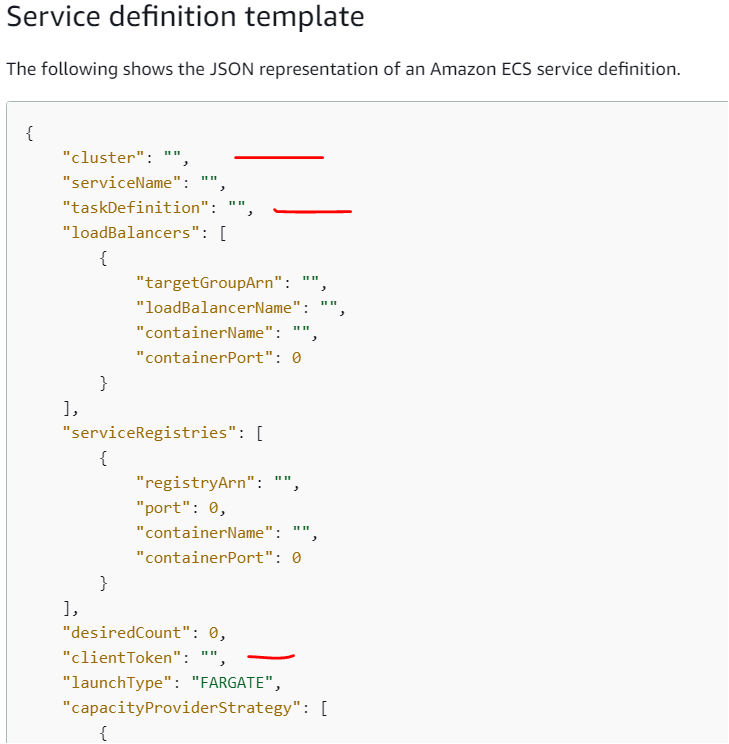Amazon ECS Service Definition Parameters
Question
Which of the following are the parameters specified in Amazon ECS Service Definition? (Select Three)
Answers
Explanations
Click on the arrows to vote for the correct answer
A. B. C. D. E.Answer: A, B, E.
A service definition defines which task definition to use with your service, how many instantiations of that task to run, and which load balancers (if any) associate with your tasks.
Following are some parameters defined in Service Definition.
References:
https://docs.aws.amazon.com/AmazonECS/latest/developerguide/service_definition_parameters.html
Amazon Elastic Container Service (ECS) is a highly scalable, high-performance container orchestration service that supports Docker containers and allows you to run and manage Docker containers in the AWS Cloud. When creating a service in Amazon ECS, you can specify various parameters in the service definition.
Out of the given options, the following are the parameters specified in Amazon ECS Service Definition:
A. Cluster: A cluster is a logical grouping of resources, such as EC2 instances, that you can run container instances on. In Amazon ECS, you can specify a cluster in which to run a service.
B. Capacity provider strategy: Capacity provider strategy specifies how the tasks for the service are placed and where they are placed. You can choose from different strategies like the "spread" strategy, which places tasks across different Availability Zones, or the "binpack" strategy, which places tasks on the least utilized instance in a cluster.
C. Environment Variables: Environment variables are key-value pairs that can be set for a container. They provide a way to pass configuration information to the container and to customize its behavior.
D. Data Volumes: Data volumes provide a way for containers to persist data even after the container has been terminated. You can specify data volumes in the task definition, which is used by the service.
E. Client token: Client token is an optional parameter that you can use to ensure idempotency of your service deployment. When you create or update a service, you can provide a unique client token, which ensures that the operation is performed only once, even if it is retried multiple times.
Therefore, the correct answers are A (Cluster), B (Capacity provider strategy), and C (Environment Variables).